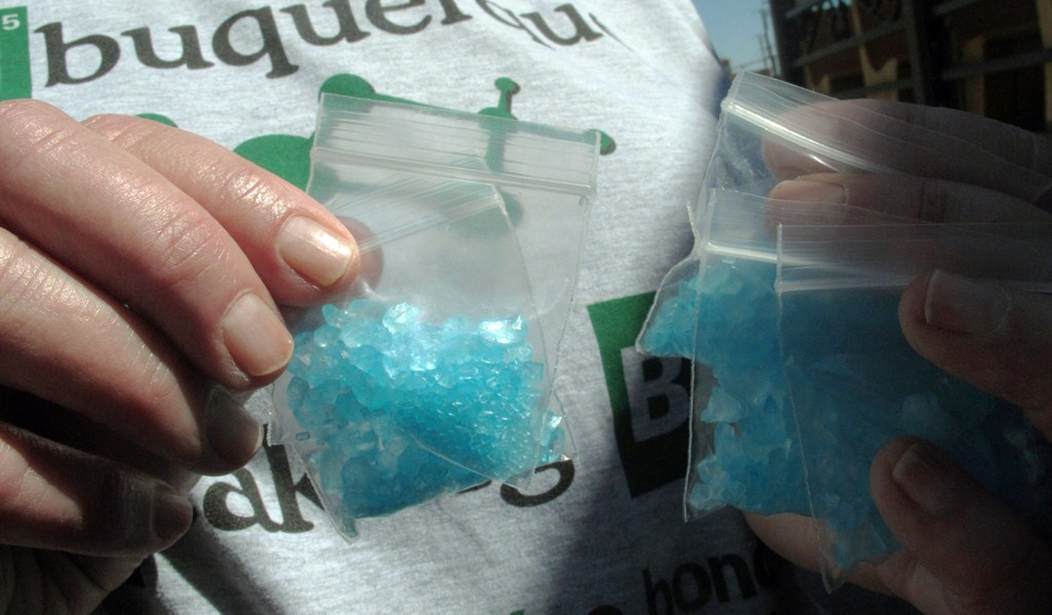Tennessee currently holds the dubious honor of being the second biggest meth state in the country, with 1,545 reported incidents in 2013. To combat the problem, Gov. Bill Haslam is pushing a bill in the Tennessee legislature that seeks to restrict over-the-counter purchases of products containing the decongestants pseudoephedrine and ephedrine to two packages per month. Unfortunately for the governor, the state’s meth problem has little to with the accessibility of Advil Cold & Sinus and everything to do with the policy of drug prohibition, which succeeds only in creating black markets, and the futility of the War on Drugs.
If history has proven anything, it’s that the human appetite demands certain vices that no amount of legislation can curb. So long as these demands exist, other people will respond by surfacing to meet them. Alcohol prohibition paved the way for a thriving empire of organized criminals who controlled the supply and distribution of liquor on the black market and settled disputes with violence in the absence of courtroom adjudication. Moreover, prohibition created the perverse incentive for people to create dangerous homemade alternatives like bathtub gin and wood alcohol to get their buzz on. Repealing alcohol prohibition all but eliminated the incentives to produce such noxious concoctions.
As it relates to today’s drug war, the prohibition phenomenon occurs primarily in the form of methamphetamine and crack cocaine. Targeting cold and allergy remedies, while ignoring the systemic problem of prohibition, will yield the unintended consequence of adversely affecting law-abiding citizens who need and rely on effective medication, not the meth industry. Health care costs would undoubtedly rise along with the difficulty to receive timely care, likely causing patients to seek less effective treatment or no treatment at all. This can lead to increased absenteeism at work, translating to lower productivity and increased health insurance rates for employers. The net result can take the form of job cuts and reductions, or the elimination, of health benefits.
Recommended
Senior citizens are likely to be among the most unfairly burdened by restrictive access to pseudoephedrine and ephedrine, according to AARP Tennessee executive council member Debbie Pare:
Transportation is a huge issue that is increasing as more and more seniors give up their driving and then now are depending on others to get them places. With this bill requiring more frequent visits to the doctor's office for prescriptions for these medications, it's going to be a hardship. I think everybody realizes what the dilemma is and the impact that the meth production is having on every community in the state. But is there maybe an option that won't affect seniors negatively?
Oregon was the first state to require prescriptions for pseudoephedrine, providing a clear example that stringent laws regulating and restricting decongestants simply do not achieve their desired outcome. While the Beaver State’s prescription requirement took effect in 2006, a 2011 report from the Office of National Drug Control Policy indicates a "sustained high level of methamphetamine availability" in Oregon. The national results are no different, as an Associated Press report from 2011 indicates that the laws dramatically increase the black market value of medications containing pseudoephedrine. Radley Balko highlights further negative unintended consequences of such laws in The Huffington Post:
They've given rise to a new way of making meth that requires less pseudoephedrine, called the "shake and bake" method, and it has taken off. The AP reported in 2010 that the new method, which involves shaking a cocktail of volatile chemicals in a two-liter bottle, only makes enough of the drug for one or two people. But if done wrong, the resulting chemical burns can be worse than those from exploding backyard and basement labs.
Restrictions and prescription requirements for cold medications with little to no effect on the overall supply of meth don’t even begin to scratch the surface of the drug’s epidemic, much less the overarching problems with prohibition and the war on drugs. If Tennessee truly wishes to combat the state’s meth problem directly, the legislature and Gov. Haslam need to embrace the reality that the drug war is futile, destructive, and an absolute failure.
In stark contrast to America’s backwards drug war, Portugal decriminalized all drugs in 2001 in response to a heroin epidemic in 2001 and has since succeeded in reducing the country’s heroin use by 60%. Meth should similarly be dealt with as a public health concern as opposed to a criminal justice concern. Just as legalizing alcohol essentially eliminated toxic prohibition-era concoctions, ending the drug war will remove the perverse incentives that initially caused the illicit meth outbreak.

























Join the conversation as a VIP Member